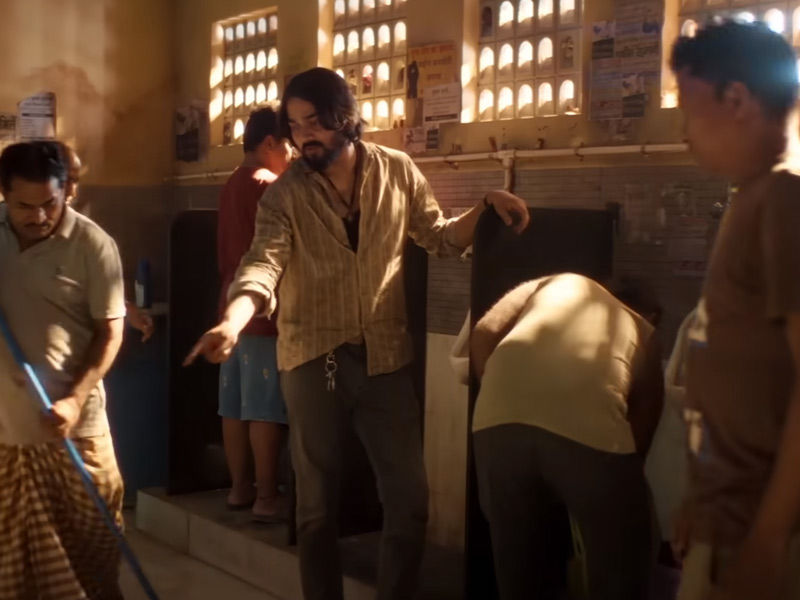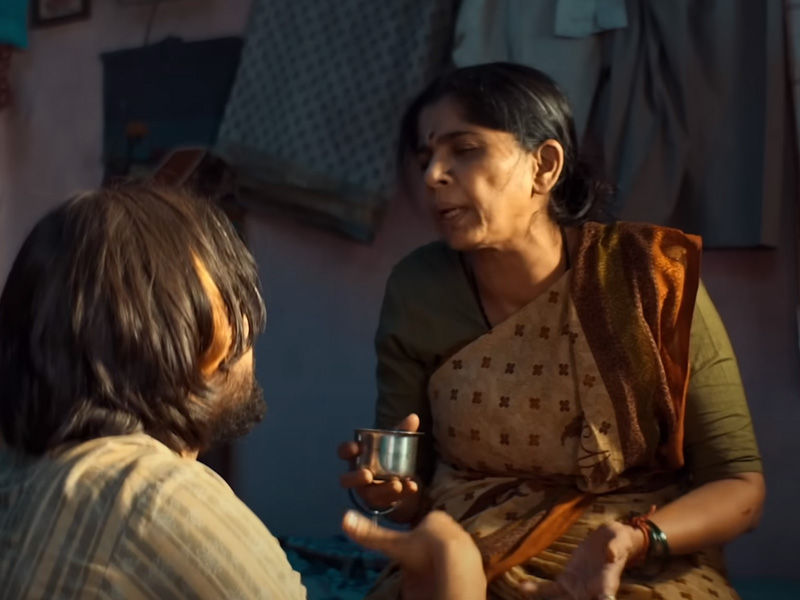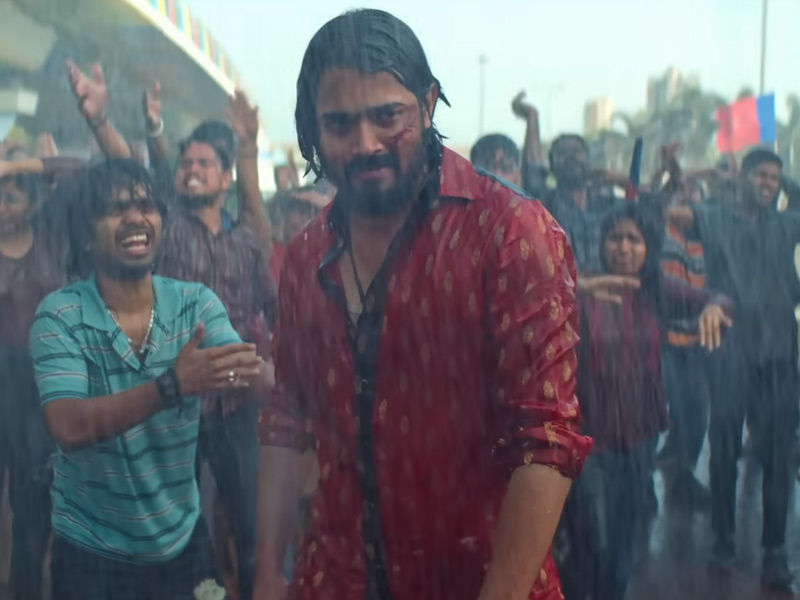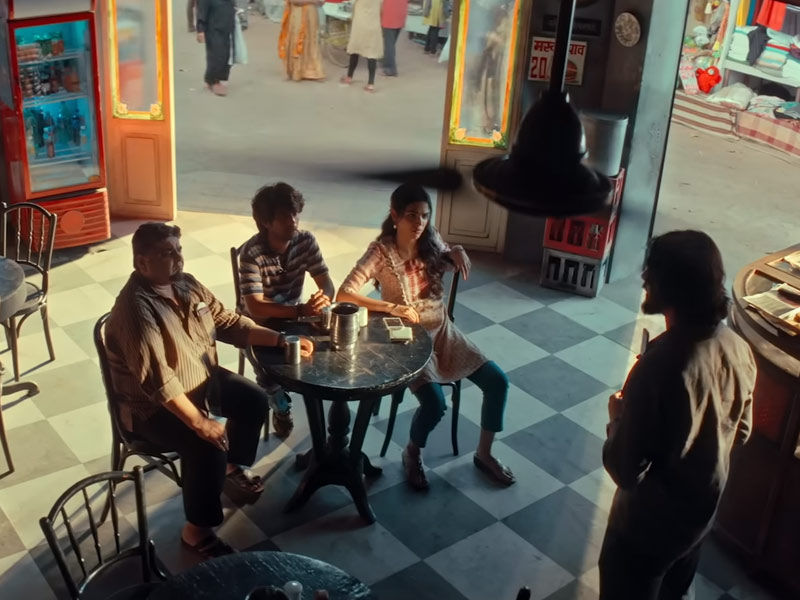Life takes unforeseen paths for a Mumbai chawl inhabitant who maintains a pay-and-use public bathroom in Taaza Khabar, popular YouTuber Bhuvan Bam’s debut online program. A good deed and the resulting miracle grant the young guy the ability to glimpse the immediate future and alter his and the lady he loves fates. The series could have used a little more magic.
The six-episode Hotstar Specials program is directed by Himank Gaur, who also directed Bhuvan Bam’s YouTube series Dhindora, and is a comedy-drama about a poor youngster, Vasant “Vasya” Gawde, who seeks a better life for himself, his mother, his lover, and his friends.

Other significant characters in the show include a prostitute in love and a thug with political ambitions. The two personalities have such an evident influence on the protagonist’s life that the chance of any big shocks slipping into the love-and-lust triangle is quite remote.
Taaza Khabar’s fundamental premise is novel, but the characters and story elements are as old as yesterday’s news. It has very nothing that could be characterized as fresh from the oven. The hero makes a mint by betting on cricket matches whose outcome he knows ahead of time, amasses an absurd amount of cash, and then, predictably, realizes that there is more to life than money.

The screenplay by Hussain Dalal and Abbas Dalal is thin, labored, and devoid of genuine insight into what a man stuck in a rut should be chasing. It hinges on the fact that the protagonist is privy to events that haven’t yet occurred and the advantage that he derives from the clairvoyance that he is endowed with.
Taaza Khabar is a rags-to-riches novel loaded with glib musings on the distinctions between jadoo (magic) and chamatkar (miracle), dhokha (fraud) and yakeen (believing), shraap (curse) and vardaan (blessed), and kismat and karma. Kismat (Mahesh Manjrekar in a cameo) boasts about running a “jugaad ka supermarket” in the series.

It takes Vasya six episodes of around 30 minutes each to gain the wisdom he requires, yet the audience is no wiser at the end of the arc. The problem is that the series is little more than a collection of half-baked homilies that never reach home.
Bhuvan Bam, the lead actor, and producer, dives into the material with zeal, but nothing he and the scriptwriters can manage is enough to counterbalance the negative impact of a manufactured tale devoid of true imagination and freshness.
Bam struts around like an old school, past-his-prime matinée idol who has no idea that his days are no longer as brilliant as they once were, playing a man with a god complex, a guy who overreaches, achieves heady material success, and then runs into the flip side of money and fame.

Vasya comes to believe the illusion after being labeled as bhagwan on multiple occasions by others around him. He wonders, Kahin main bhagwan toh nahin, and then begins to erase all doubt. “Main bhi kismat badal sakta hoon, woh kismat badal sakta hoon. Usse nahin rok sakta, mujhe nahin rok sakta, “he claims.
The lady in Vasya’s life tells him at one point that he can see the future but cannot alter it. “Kya kar raha hai bacche ki tarah?” she asks him in another. That is exactly our question. The man struts around like a child in a candy store.

The depiction of adversity and serendipity is drawn in broad strokes, leaving little opportunity for the finer lines that characterize human connections and fate twists to emerge and drive the tale toward more depth. The hero’s socioeconomic position isn’t developed beyond the essential details revealing his modest roots.
Also read: Sick: New slasher/home invasion thriller
His occupation as a sanitation worker is only mentioned in passing and is never made a vital component of the story. Vasya’s mother (Atisha Naik) has had a difficult upbringing. She works as a maidservant in the home of a wealthy man, and her drunken, violent husband (Vijay Nikam) complicates matters. Vasant Gawde is eager to teach the world a lesson because of her.
It is both perplexing and reasonable that a financially and socially downtrodden guy is transformed into a figure whose sole goal in life is to imitate the wealthy, slimy boss who humiliates his mother. Taaza Khabar is adamant that you can only battle money with greater riches, even if it is obtained in dubious ways, and that empowerment can only come from acts of deception.

Taaza Khabar’s conviction that only a miracle can assist a guy like Vasant Gawde to climb out of the abyss that life has doomed him to is probably correct.
Taaza Khabar has a villain as well. However, he is such a weak, sketchy figure that he comes across like a young child who has been deprived of his favorite toy. He can’t seem to quit moping. He’s more of a sourpuss than a seasoned criminal capable of being truly threatening.
The series’ fey villain encapsulates it all: the chasm between purpose and execution, between desire and disposition, is unbridgeable. Worse, the female he lusts for is not given any agency. She gets shoved around until another man dares to try to save her.

The main cast members, including Shriya Pilgaonkar as sex worker Madhu, Shilpa Shukla as brothel madam Reshma, and J.D. Chakravarthy as politically powerful hoodlum Atul Shetty, go through the motions competently without ever coming close to livening up a drab show that pans out along completely predictable lines.
Prathamesh Parab portrays the hero’s childhood friend Peter, Deven Bhojani plays bakery owner Mehboob, and Nitya Mathur plays the restaurateur’s daughter Shazia, who has a knack for mathematics and comes in handy when Vasya calculates his bets. This trio of performers is responsible for some of the most memorable scenes.
Taaza Khabar contains no magic. It’s a drab affair based on stale components that lack any sense of novelty.





























